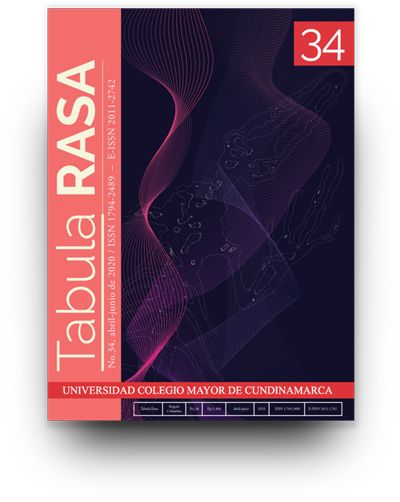Ethnography, biopolitics and coloniality : genealogies of urban precariousness in the Buenos Aires metropolitan region.
Etnografía, biopolítica y colonialidad : genealogías de la precariedad urbana en la Región Metropolitana de Buenos Aires.
Show authors biography
This article proposes elements for a genealogy of urban space, where through the coloniality, urbanization and modernity trilogy we approach the problematization of contemporary forms of biopolitics. A history of our present urbanity in Buenos Aires, a metropolis that, like others in the global south, since the end of the 20th century, faces an expansion of the growing and constant urban stain that occurs in the heat of processes by which while some areas they expand with the features of globalized cosmopolitan life, others also expand and settle in the forms of precarious urbanization. The proposed work and discussions take place at the moment when ethnography and biopolitics meet. At this intersection, the field material contributes to the debate about the place of ethnography in the memory of the present through a file that composes a set of events, relationships and struggles that occur both in territory and by territory. An archive in which the lines of the present are pulled by those others that from the limbo of history remember their presence. Image of forgotten stories, juxtaposed in the present that allow to undermine linear and progressive notions of urban development and remember that violence is buried not only in the historical record but also in the urban landscape. We propose that the panics, fears and anxieties typical of the urban do not constitute a novelty of the 21st century, but rather form a neuralgic part of the constitution of modern and colonial Buenos Aires.
Article visits 149 | PDF visits 89
Downloads
- Adamovsky, E. (2015) Historia de la clase media argentina: apogeo y decadencia de una ilusión, 1919-2003, Buenos Aires: Booket/Planeta.
- Adamovsky, E. (2014). La cuarta función del criollismo y las luchas por la definición del origen y el color del ethnos argentino (desde las primeras novelas gauchescas hasta c. 1940). Boletín del Instituto de Historia Argentina y Americana «Dr. Emilio Ravignani», tercera serie, 41, 50-92.
- Brady, M. (2014). Ethnographies of Neoliberal Governmentalities, Foucault Studies. 18, 11-33. doi:10.22439/fs.v0i18.4649.
- Castro-Gómez, S. (2010). La hybris del punto cero. Ciencia, raza e ilustración en la Nueva Granada (1750-1816). Bogotá: Pontificia Universidad Javeriana.
- Curutchet, G., Grinberg, S. & Gutiérrez, R. (2012). Degradación ambiental y periferia urbana: un estudio transdiciplinario sobre la contaminación en la región metropolitana de Buenos Aires. Ambiente & Sociedade,15(2), 173-194. DOI: 10.1590/S1414- 753X2012000200010
- Davis, M. (2006). Planets of slums. London: Verso.
- Foucault, M. (2006). Seguridad, territorio y población. Buenos Aires: Fondo de Cultura Económica.
- Foucault, M. (1999). El nacimiento de la medicina social. En, Estrategias de poder, Madrid: Paidós.
- Geertz, C. (2003). La interpretación de las culturas. Barcelona: Gedisa.
- Grinberg, S., Dafunchio, S. & Mantiñán, L. M. (2013) Biopolítica y ambiente en cuestión. Los lugares de la basura. Horizontes Sociológicos, 1(1), 115-142.
- Hall, P. (1996). Cities of tomorrow, Oxford: Blackwell Publishes.
- Katzer, L. (2018). Hacia una antropología de la biopolítica: repensar el territorio étnico desde una etnografía de la gubernamentalidad provincial, Mendoza: Universidad del Aconcagua.
- Katzer, L. (2016). Bio-poéticas y bio-políticas coloniales. Una Arqueología del saber etnológico/etnográfico, Mutatis Mutandis: Revista Internacional de Filosofía, 7, 85-137.
- Katzer, L. (2009). El mestizaje como dispositivo biopolítico. En L. Tamagno (Comp.). Pueblos Indígenas. Interculturalidad, colonialidad, política, [pp. 59-75]. La Plata: Biblos.
- MacFarlane, K. & Mitchell, K. (2019). Hamburg’s Spaces of Danger: Race, Violence and Memory in a Contemporary Global City, International Journal of Urban and Regional Research, 38(3), 816-832. DOI: 10.1111/1468-2427.12814
- Morello, A. (1974). Reseña histórica de la ciudad y el partido de Gral. San Martín. Buenos Aires: Ed. Testimonio.
- Osborne, T. & Rose, N. (1999). Governing Cities: Notes on the Spatialisation of Virtue, Environmental and Planning D, Society and Space, 17, 737-760. DOI: 10.1068/d170737
- Pred, A. (2004). The Past is Not Dead: Facts, Fictions, and Enduring Racial Stereotypes. Minneapolis: University of Minnesota Press.
- Roy, A. (2011). Slumdog Cities: Rethinking Subaltern Urbanism, International Journal of Urban and Regional Research, 35(2), 223-238.
- Sontag, S. (2006). Sobre la fotografía. México: Alfaguara.
- Svampa, M. (2015) Extractivismo, desarrollo y buen vivir: visiones en pugna, Santiago de Chile: Ediciones Lom.
- Svampa, M. (2015). Commodities Consensus: Neoextractivism and Enclosure of the Commons, South Atlantic Quarterly, 114(1), 65-82.
- Svampa, M. & Viale, E. (2016) Continuidades y radicalización del extractivismo en Argentina, Voces en el Fénix, Recuperado de: https://vocesenelfenix.com/content/continuidad-y-radicalizaci%C3%B3n-del-neoextractivismo-en-la-argentina
- Wilde, G. (2015). Indigenous Agency and Written Culture in the Jesuit Missions of Paraguay, Minpaku Anthropology Newsletter, 40, 9-10.




